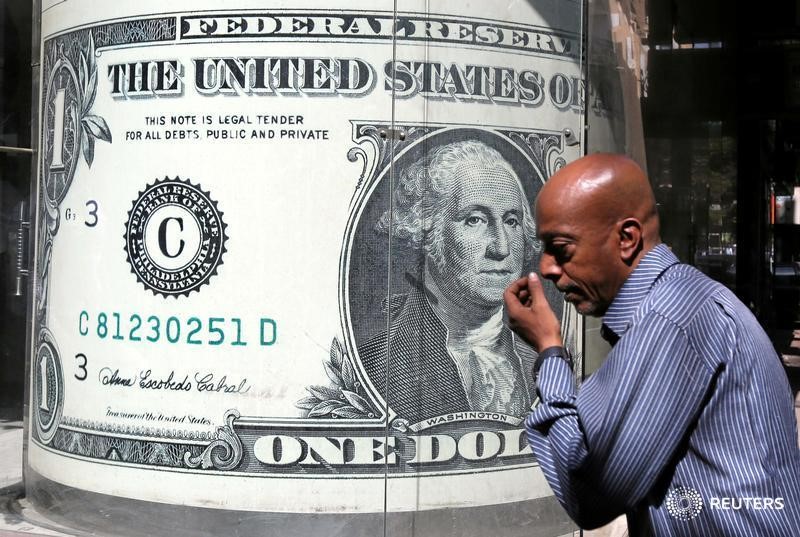By Stanley White
TOKYO, June 9 (Reuters) - Japanese investors have clipped
the wings of a resurgent U.S. dollar as they position for the
likelihood that the U.S. Federal Reserve will take steps to
flatten the Treasury yield curve.
Ahead of the Fed's two-day policy meeting that ends on
Wednesday, speculation is growing that the U.S. central bank
might adopt yield targets on bonds, or some other measures to
anchor long-term yields.
The yield curve has steepened in recent days as improving
U.S. data drove a sell-off in U.S. bonds, with 10-year yields
US10YT=RR rising 28 basis points to 0.959% last week.
Most global investors don't expect the Fed will try to
anchor Treasury yields. In Japan, however, the first major
economy to adopt yield-curve-control four years ago, there is
more chatter about such a possibility.
"Japanese names have been very active since Monday in
dollar/yen, trying to trade off the chance of some kind of
yield-curve control from the Fed," said Yukio Ishizuki, foreign
exchange strategist at Daiwa Securities.
"I personally don't think yield curve control is necessary
now, but the dollar is under clear selling pressure."
Traders said Japanese investors have been heavy sellers of
dollars for yen this week, positioning for possibly lower U.S.
yields.
The yen JPY=EBS has risen sharply, up 1.8% from lows of
109.85 on Friday.
The dollar had gained 1.6% against the yen last week, its
best weekly performance in more than two months, as spreads
between U.S. and Japanese yields widened.
This is a sign that the yield spread is becoming the main
trading factor for dollar/yen, said Junichi Ishikawa, senior
foreign exchange strategist at IG Securities.
If the Fed does not take action this week, traders expect
the dollar could break into a new higher trading range versus
the yen, spurred on by a steepening Treasury yield curve.
Those that expect it to do nothing point to 10-year Treasury
yields US10YT=RR still being quite low.
"The current risk-seeking environment and the shift up in
yields has supported dollar/yen's break above 109," said
Toshinobu Chiba, chief fixed income portfolio manager at Nissay
Asset Management Co.
"However, this yen weakness will not continue because dollar
liquidity is too much now."
<^^^^^^^^^^^^^^^^^^^^^^^^^^^^^^^^^^^^^^^^^^^^^^^^^^^^^^^^^^^
Dollar/Yen and the Treasury Yield Curve https://tmsnrt.rs/2Yibu66
^^^^^^^^^^^^^^^^^^^^^^^^^^^^^^^^^^^^^^^^^^^^^^^^^^^^^^^^^^^>
